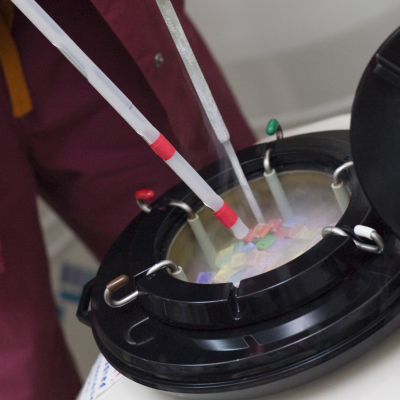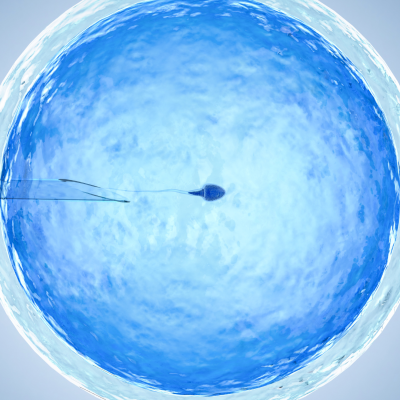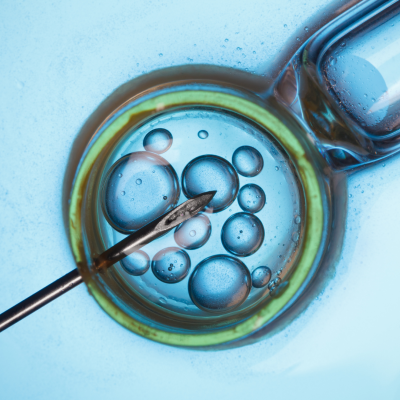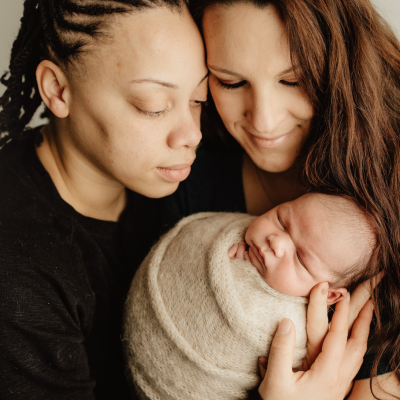Embryo Freezing in Southern California
Many couples trying to get pregnant through in vitro fertilization (IVF) have their embryos frozen (cryopreserved) during the process. The indications for embryo freezing are multiple, from embryo banking for future use, to improving IVF success rates, to improved obstetrical outcomes. Doctor Mor’s IVF center has successfully performed this procedure with excellent results for many couples in the Los Angeles area.
Embryo Freezing
Embryo freezing allows for storage of unused embryos for an indefinite amount of time. In vitro fertilization and egg donation cycles often result in more embryos than actually needed for transfer. After transfer of fresh embryos into the uterus, any remaining embryos which are suitable for freezing are cryopreserved. Embryos may be frozen at the day-1, day-3 stage or the day-5 or day-6 blastocyst stage. A frozen embryo transfer may then be performed at any future time in a simple short procedure.
There are various indications for embryo freezing beyond the storage of surplus embryos. In poor responders (patients who respond to injectable hormones with only a small number of eggs/embryos) for example, it may be necessary to perform several cycles of IVF/embryo freezing in order to accumulate enough embryos for a single embryo transfer. Similarly, in patients who require a combination ZIFT/IVF(see above), embryo banking may be necessary in order to obtain enough embryos for transfer both into the fallopian tubes as well as the uterus. Occasionally, a uterine abnormality may preclude transfer of fresh embryos, requiring storage of embryos until the uterus is normalized.
The California Center for Reproductive Health has extensive experience in embryo freezing. Although implantation rates for frozen-thawed embryos are generally lower than those for fresh embryos, success rates at our Center are still high, reaching live birth rates of 30-40%.
Don’t just take our word for it!
Listen to what our patients have to say.
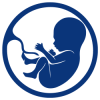
3,000+

20+

2X
FAQ
Reproductive endocrinology and Infertility is a sub-specialty of Obstetrics and Gynecology. In addition to managing medical and surgical treatment of disorders of the female reproductive tract, reproductive endocrinologist and infertility (REI) specialists undergo additional years of training to provide fertility treatments using assisted reproductive technology (ART) such as in vitro fertilization.
Reproductive endocrinologists receive board certification by the American Board of Obstetrics and Gynecology in both Obstetrics and Gynecology and Reproductive Endocrinology and Infertility.
In general, patients should consider consulting with an REI specialist after one year of trying unsuccessfully to achieve pregnancy. The chance of conceiving every month is around 20%, therefore after a full year of trying approximately 15% of couples will still not have achieved a pregnancy.
However, if a woman is over the age of 35 it would be reasonable to see a fertility specialist earlier, typically after 6 months of trying.
Other candidates to seek earlier treatment are women who have irregular menses, endometriosis, fibroids, polycystic ovary syndrome (PCOS), women who have had 2 or more miscarriages, or problems with the fallopian tubes (prior ectopic pregnancy).
Approximately 1/3 of the time cause for infertility is a female factor, 1/3 of the time a male factor, and the remaining 1/3 a couples’ factor.
At CCRH, we emphasize the importance of establishing a correct diagnosis. Both partners undergo a comprehensive evaluation including a medical history and physical exam.
Furthremore, the woman’s ovarian reserve is assessed with a pelvic ultrasound and a hormonal profile. A hysterosalpingogram (HSG) will confirm fallopian tube patency and the uterine cavity is free of intracavitary lesions. A semen analysis is also obtained to evaluate for concentration, motility, and morphology of the sperm.
Additional work up is then individualized to direct the best possible treatment option for each couple.
In vitro fertilization (IVF) is the process that involves fertilization of an egg outside of a woman’s body.
The process starts with fertility drugs prescribed to help stimulate egg development. In your natural cycle, your body is only able to grow one dominant egg, but with stimulation medication we can recruit multiple eggs to continue to grow. After about 8-10 days of stimulation, the eggs are surgically retrieved and then fertilized with sperm in a specialized laboratory. Fertilized eggs are then cultured under a strictly controlled environment within specialized incubators in the IVF laboratory for 3-5 days while they develop as embryos. Finally, embryos (or an embryo) are transferred into the uterine cavity for implantation.
Before deciding if IVF is the right choice, it’s important to sit down with an REI specialist to discuss available treatment options. For some people, other methods such as fertility drugs, intrauterine insemination (IUI) may be the best first choice treatment. At CCRH, we believe each individual couple is unique and not everyone needs IVF.
While not painful, the fertility medications may some side effects including headaches, hot flashes, mood swings, and bloating. The injection sites may also bruise.
Unfortunately, no. Many people think once they start IVF it’s a matter of time that they will be pregnant and have a baby. But according to national statistics per the Society of Assisted Reproduction (SART), on average 40% of assisted reproduction cycles achieve live births in women under age 35. The chances of success then continue to decrease with advancing age.
At CCRH, we employ only evidence-based interventions to ensure patient safety and optimal outcome. While we cannot guarantee a baby, we guarantee that you will receive the best, most advanced, personalized care to help you maximize your chance of a baby.
The average IVF success rate (success measured in live birth rate) using one’s own eggs begins to drop around age 35 and then rapidly after age 40. This is due to the decline in egg quantity and egg quality as a woman ages.
Our clinic’s success rate consistently beats the national average year after year.
Individual insurance plans often do not have any coverage for infertility treatments. If you have a group plan, you can call members services to see if they have coverage for infertility (including consultation/workup and IVF).
After your consultation with our REI specialist, one of our dedicated account managers with sit with you to go over the cost of treatment.




